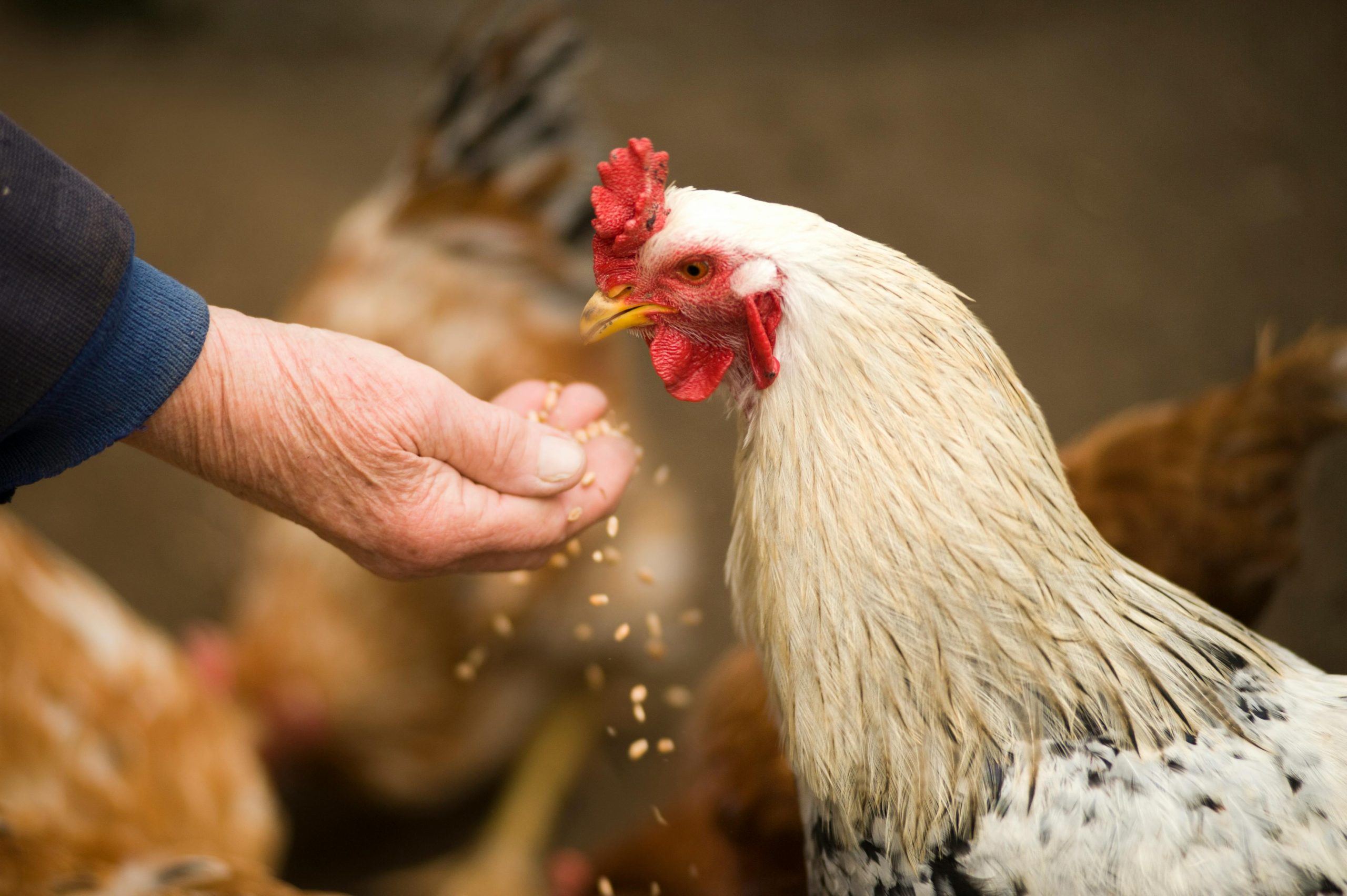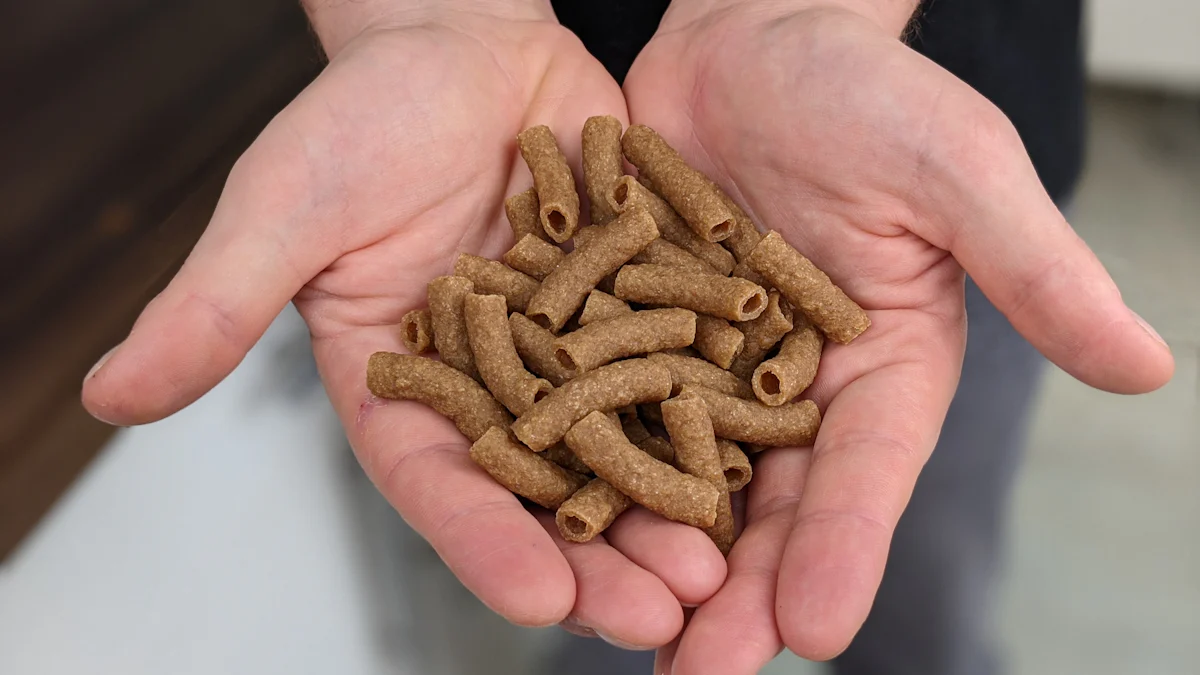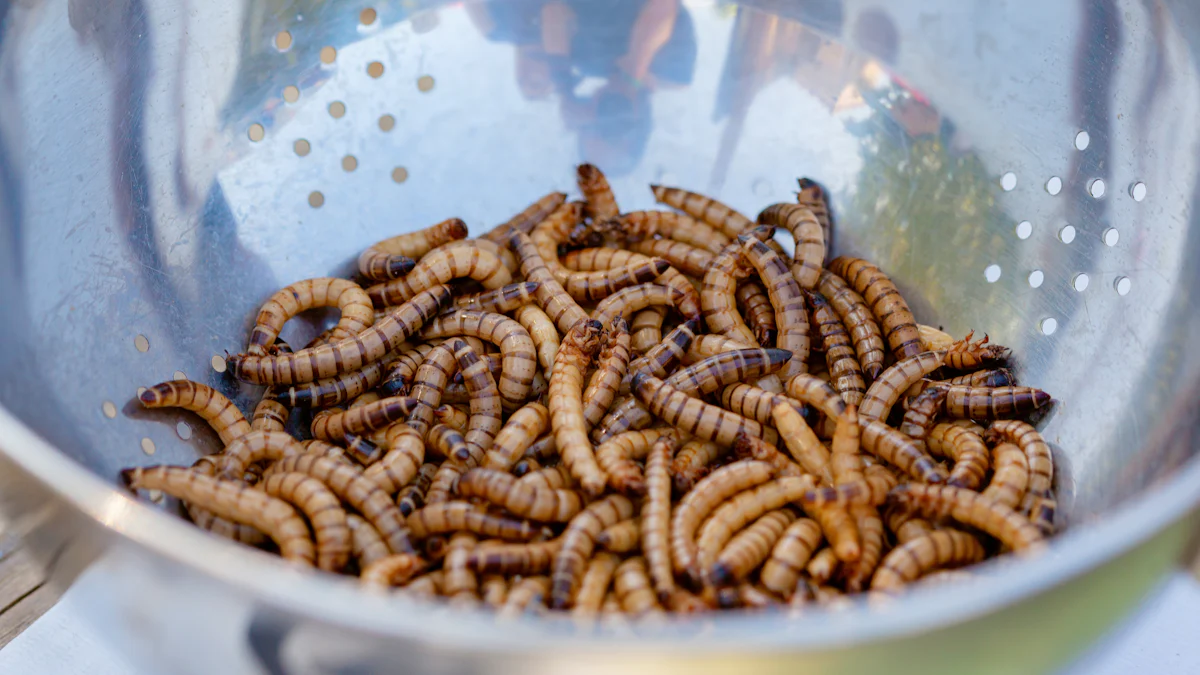
Mealworms can transform your chicken’s diet into a powerhouse of nutrition. Packed with protein and essential fatty acids like omega-3 and omega-6, they enhance your hens’ metabolism and immune system. This leads to consistent egg production and better-quality eggs with thicker shells and vibrant yolks. Mealworm raising offers a sustainable way to achieve these benefits while reducing environmental impact.
Key Takeaways
- Mealworms have lots of protein, which keeps hens healthy.
- Adding mealworms to chicken feed makes eggshells stronger and yolks brighter.
- Growing mealworms is cheap and eco-friendly, using less land and water.
Why Mealworms Are Essential for Egg Production

The Importance of Protein in a Hen’s Diet
Protein plays a vital role in egg production. Hens need at least 17 grams of protein daily to maintain their health and produce eggs consistently. During their early laying phase (20 to 42 weeks), protein supports growth and peak egg production. Later, it helps maintain their bodies while continuing to produce eggs. A lack of protein can lead to fewer eggs and lower-quality shells.
The connection between protein intake and egg production is clear. Hens fed a high-protein diet can achieve up to 93.23% peak egg production, with eggs weighing around 58.78 grams. In contrast, hens on a low-protein diet produce fewer eggs, with thinner shells and lighter yolks. Providing your chickens with a protein-rich food source like mealworms ensures they stay healthy and productive.
| Protein Level | Hen Day Egg Production (HDEP) | Egg Weight (g) |
|---|---|---|
| High | 93.23% peak production | 58.78 |
| Medium | 95.68% peak production | 55.94 |
| Low | 90.33% peak production | 52.73 |
Nutritional Benefits of Mealworms for Chickens
Mealworms are a nutritional powerhouse for your flock. They contain 40% to 50% protein, essential for growth, feather development, and egg production. Their amino acid profile includes Methionine and Lysine, which are crucial for protein synthesis and healthy feathers. Mealworms also provide essential fatty acids like omega-3 and omega-6, which improve metabolism and heart health.
In addition to protein and fats, mealworms offer vitamins and minerals that support overall health. Vitamin B12 aids nerve function, while phosphorus strengthens bones. Their fiber content improves digestion, ensuring your chickens absorb nutrients efficiently. By incorporating mealworms into your chicken’s diet, you can enhance their health and boost egg quality.
Mealworms vs. Other Protein Sources
Mealworms outperform many traditional protein sources like soy or fish meal. They contain 51.93 grams of protein per 100 grams, higher than soy meal’s 44.51 grams. While soy has a slightly higher total of essential amino acids, mealworms provide a more balanced nutrient profile. They also include essential fatty acids and vitamins that soy lacks.
Replacing fish or soybean meal with mealworms can lead to similar or even better growth and digestibility in chickens. Additionally, mealworm raising is more sustainable. It requires less land and water and produces fewer greenhouse gas emissions compared to traditional protein sources. This makes mealworms an eco-friendly and cost-effective choice for your flock.
Mealworm Raising: A Step-by-Step Guide

Setting Up Your Mealworm Farm
Starting a mealworm farm is simple and requires minimal equipment. Begin by finding a plastic storage container or aquarium at least 5 inches deep. Add 2-4 inches of wheat bran or plain oatmeal as the substrate. If you use a lid, drill ventilation holes or replace the center with mesh to ensure airflow. Introduce about 5,000 mealworms into the container and provide moisture by adding slices of potato or carrot. Place the farm in a dark, warm location to encourage growth.
Mealworms thrive in specific conditions. Keep the temperature between 77-80°F and maintain humidity at 65-70%. These settings promote faster growth and higher reproduction rates. Proper ventilation is also essential to prevent moisture buildup and mold.
Caring for and Maintaining Mealworms
To keep your mealworm colony healthy, clean the enclosure regularly. Remove old food and waste weekly to avoid mold and pests. Replace the substrate as needed and provide fresh vegetables like cabbage or potatoes for moisture. Avoid overfeeding to prevent excess humidity.
Check the farm daily for signs of dehydration or mold. Maintain the temperature around 80°F and humidity between 65-70%. If pests like grain mites appear, reduce humidity below 50% and clean the container thoroughly. Proper care ensures a steady supply of mealworms for your chickens.
Harvesting Mealworms for Chicken Feed
Harvest mealworms when they reach maturity, typically after 10-12 weeks. Use a fine mesh strainer or a specialized harvesting tray to separate them from the substrate. Store harvested mealworms in a refrigerator at 45-50°F to keep them dormant and maintain their nutritional value. For long-term storage, freeze them in a sealed container.
Mealworms can also lead to better egg production. The protein and other nutrients they provide contribute to the health of the laying hens. As a result, laying hens can produce eggs more consistently. The quality of the eggs, including the thickness of the shell and the color of the yolk, can also improve.
Benefits of Feeding Mealworms to Chickens
Boosting Egg Quantity and Quality
Feeding mealworms to your chickens can significantly improve both the quantity and quality of eggs. Mealworms provide high levels of protein and essential amino acids like methionine and lysine, which are critical for egg formation. These nutrients strengthen eggshells and enhance yolk color.
- How mealworms improve egg quality:
- Stronger eggshells due to better calcium absorption.
- Richer yolk color and larger egg size.
- Dried mealworms increase protein intake during the laying phase.
- Higher protein levels result in nutrient-rich eggs.
- Essential amino acids in mealworms enhance shell strength.
Research shows that hens fed mealworms produce eggs with higher omega-3 fatty acid levels, benefiting both the chickens and the people consuming the eggs. By incorporating mealworms into their diet, you can ensure consistent egg production and superior egg quality.
Supporting Chicken Health and Happiness
Mealworms contribute to your chickens’ overall health and well-being. They are packed with nutrients that support growth, feather development, and immune function.
| Nutrient | Benefit |
|---|---|
| Protein | Essential for growth and feather development |
| Fat | Provides energy and aids vitamin absorption |
| Fiber | Improves digestion |
| Vitamins | Supports nerve function (e.g., B12) |
| Minerals | Strengthens bones (e.g., phosphorus) |
Feeding mealworms also keeps your chickens active and engaged. Scattering mealworms around the yard encourages natural foraging behavior, which prevents boredom and reduces aggression. This activity promotes mental stimulation and keeps your flock happy and healthy.
Sustainability and Cost-Effectiveness
Mealworm raising offers a sustainable and cost-effective solution for poultry farming. Mealworms require less land, water, and feed compared to traditional protein sources. They thrive on organic waste, reducing landfill use and promoting a circular economy.
| Aspect | Mealworms | Traditional Livestock |
|---|---|---|
| Greenhouse Gas Emissions | Much lower | Higher emissions |
| Land Use | Requires less land | Requires significantly more |
| Water Footprint | 4341 m³/t per edible ton | 3.5 times more than mealworms |
| Feed Conversion Efficiency | Comparable to chickens | Less efficient |
Raising mealworms at home can also reduce your reliance on commercial chicken feed, saving money in the long run. Although the initial setup may require some investment, the benefits of improved chicken health, higher egg production, and reduced environmental impact make it worthwhile.
Mealworm farming offers a simple way to improve your chickens’ health and egg production. These protein-packed insects enhance egg quality, strengthen shells, and boost yolk color. They also provide entertainment for your flock, keeping them active and happy.
- Key benefits of mealworm farming:
- Economic viability with low production costs.
- Sustainability through reduced resource use and organic waste recycling.
- Improved chicken health and consistent egg production.
Farmers worldwide have seen success with mealworm diets. In Europe, chickens fed mealworms grew faster and laid healthier eggs. In Southeast Asia, smallholder farmers reduced feed costs and improved flock nutrition. Start your mealworm farm today to enjoy better eggs, healthier hens, and a more sustainable future.
FAQ
How many mealworms should I feed my chickens daily?
You can feed each chicken 10-15 mealworms daily. This amount provides a protein boost without replacing their regular feed. Adjust based on your flock’s size and needs.
Can mealworms completely replace chicken feed?
No, mealworms should supplement chicken feed, not replace it. They provide protein and nutrients but lack the balanced nutrition of commercial feed. Use them as a treat or dietary enhancement.
Are mealworms safe for chickens to eat?
Yes, mealworms are safe and highly nutritious for chickens. Ensure they are clean and free from pesticides. Avoid overfeeding to prevent digestive issues or excessive fat intake.
Tip: Start with small amounts of mealworms and observe your chickens’ response. Gradually increase the quantity to find the right balance for your flock. 🐔


